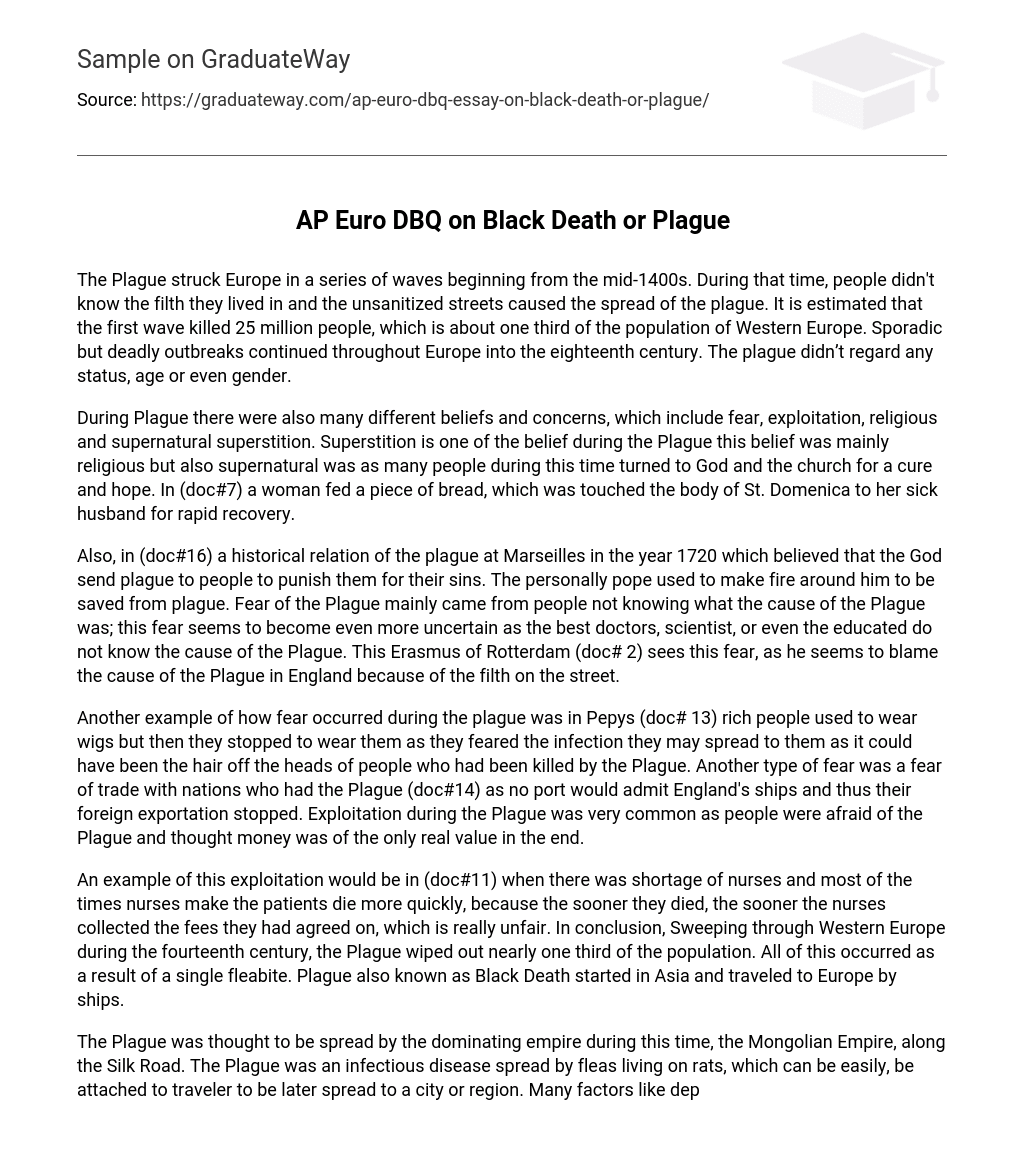The Plague, which started in the mid-1400s, had multiple outbreaks in Europe. The disease was transmitted due to poor living conditions and unclean streets. In the initial wave, approximately 25 million individuals, equivalent to one third of Western Europe’s population, perished. Throughout the following centuries until the 18th century, deadly episodes of the plague occurred sporadically in Europe and affected people regardless of their social standing, age, or gender.
During the Plague, people had various beliefs and concerns, such as fear, exploitation, and religious and supernatural superstitions. Many individuals turned to God and the church for solace while searching for a cure and hope. In (doc#7), there is an example of a woman giving her sick husband a piece of bread that had been touched by St. Domenica’s body in hopes of aiding his speedy recovery.
Also, in (doc#16), there is a historical relation of the plague at Marseilles in the year 1720, which believed that God sent the plague to punish people for their sins. The pope himself used to make fire around him to protect himself from the plague. The fear of the Plague primarily stemmed from people’s lack of knowledge about its cause. This fear became even more uncertain as even the best doctors, scientists, and educated individuals did not know what caused the Plague. Erasmus of Rotterdam (doc# 2) observes this fear and seems to attribute the cause of the Plague in England to the filth on the streets.
During the plague, fear manifested in various ways. In Pepys (doc# 13), wealthy individuals used to wear wigs, but they stopped as they feared the possibility of being infected by the hair of people who had died from the Plague. Another fear arose regarding trade with nations affected by the Plague (doc#14), resulting in port restrictions on England’s ships and a halt in foreign exportation. Exploitation was prevalent during this time, fueled by the fear of the Plague and the belief that money held the utmost importance in the end.
During the 14th century, there was a scarcity of nurses which led to an instance of exploitation as recorded in (doc#11). Nurses intentionally hastened the death of patients in order to receive their fees earlier. This conduct is extremely unfair. The Black Death, also known as the Plague, ravaged Western Europe during this period and caused approximately one third of the population to perish. It began with a solitary fleabite and originated in Asia before spreading to Europe through ships.
During this time, the Plague was believed to be transmitted by the dominant Empire, the Mongolian Empire, through the Silk Road. The Plague was an infectious disease that spread through fleas that lived on rats. These fleas could easily attach themselves to travelers and later transmit the disease to cities and regions. The Bubonic Plague led to depopulation, a decrease in trade, and major shifts in migrations. It also brought about various beliefs and concerns, including fear, exploitation, religious and supernatural superstitions, and a change in responses from the fifteenth to eighteenth century.





